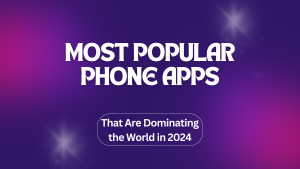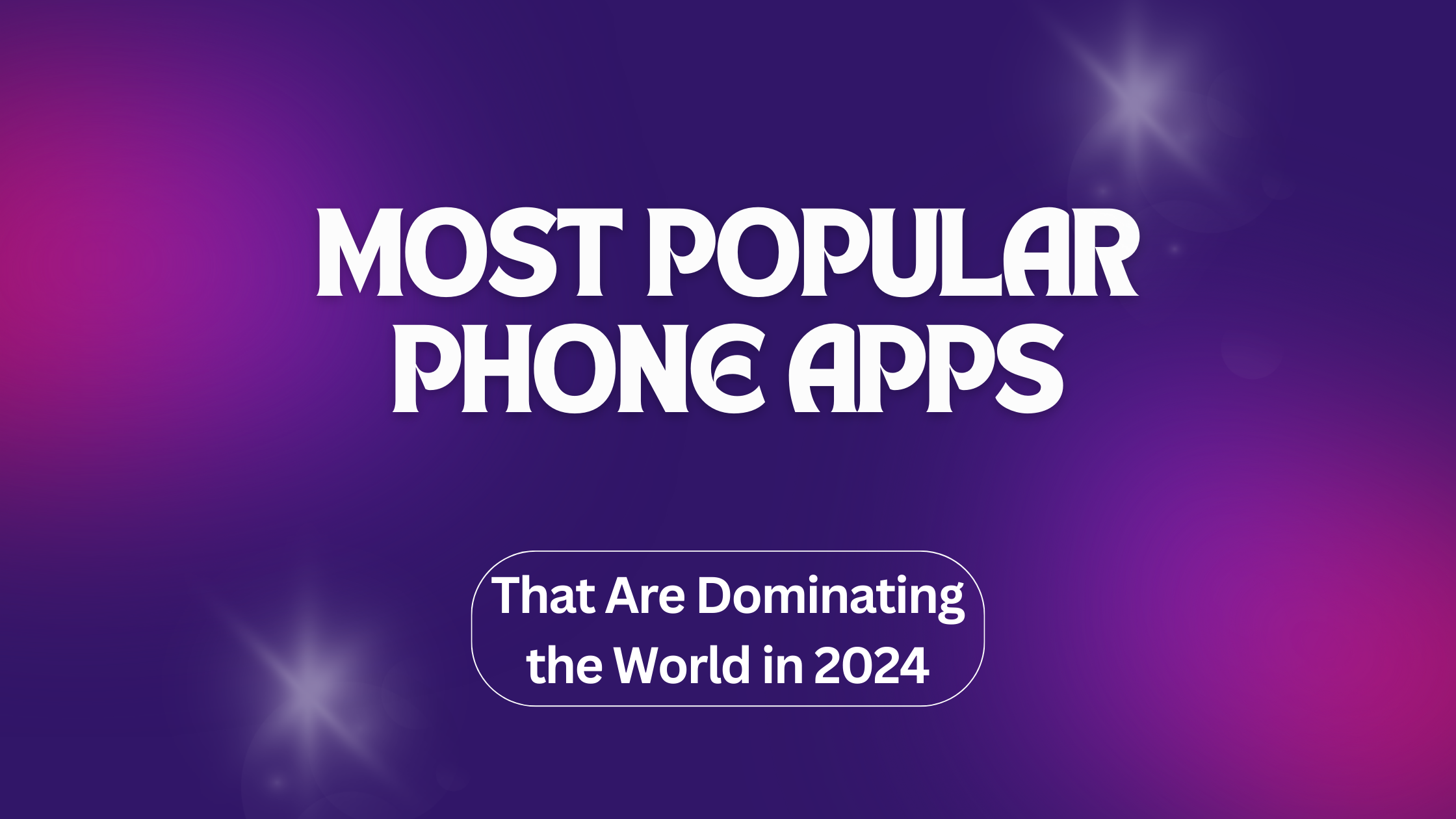Most Popular Phone Apps That Are Dominating the World in 2024
The most popular phone apps are defining how people interact with technology. These apps cover various categories, including social media, shopping, communication, and entertainment, with billions of downloads globally. This article delves into the top contenders, historical growth, and emerging trends in 2024, showcasing how these apps influence our daily lives.
Global Overview of Popular Apps
The mobile app ecosystem in 2024 is dominated by apps offering seamless user experiences and cutting-edge technology. From short-form video platforms to shopping apps powered by artificial intelligence, here are the top players:
| App Name | Category | 2024 Downloads (Millions) | Key Features |
|---|---|---|---|
| Social Media | 182.8 | Reels, Stories, e-commerce | |
| TikTok | Social Media | 117.7 | Short-form videos, AI curation |
| Messaging | 113.9 | Encrypted messaging, voice/video calls | |
| Temu | Shopping | 79.6 | AI-powered personalization |
| CapCut | Video Editing | 73.8 | AI video editing, user-friendly interface |
Historical Growth of Mobile Apps
The rise of mobile apps began with the Apple App Store in 2008, featuring just 500 applications. Over time, app stores became hubs of innovation, with millions of apps available today. The Google Play Store surpassed 3.7 million apps in 2024, while the Apple App Store hosts 1.8 million apps.
Initially, gaming apps drove the surge in downloads, followed by social media platforms like Facebook and Instagram. Over the past decade, the focus has shifted to productivity, shopping, and AI-driven tools, reflecting user demand for efficiency and entertainment.
Emerging Trends in 2024
The app landscape in 2024 is defined by significant technological advancements and user-centric innovations. Here are the key trends:
- AI Integration: Apps like TikTok and CapCut utilize artificial intelligence to personalize content and streamline tasks. AI enhances editing tools, making them accessible even for beginners.
- E-commerce Transformation: Shopping apps like Temu and SHEIN leverage AI to deliver tailored product recommendations. Interactive features such as live events blur the lines between shopping and social media.
- Immersive Technologies: Augmented and virtual reality (AR/VR) features are gaining traction, especially in gaming and social media apps like Snapchat. These technologies provide users with interactive experiences beyond standard mobile interfaces.
- Hybrid Work and Productivity: Apps like Zoom and Microsoft Teams are essential for remote work, integrating AI to assist with scheduling, transcription, and communication.
Revenue and Category Dominance
In terms of revenue, gaming continues to dominate, followed by shopping and social media apps. Here’s a breakdown:
| Category | Revenue (USD Billion) |
|---|---|
| Gaming | 22.6 |
| Shopping | 15.1 |
| Social Media | 12.5 |
| Productivity | 9.8 |
This data highlights the enduring appeal of gaming and the growing influence of e-commerce apps in shaping user behavior.
The Impact of Mobile Apps on Daily Life
Mobile apps have become essential tools for communication, productivity, and entertainment. Platforms like WhatsApp connect billions of users worldwide, while TikTok and Instagram redefine content consumption through short-form videos and interactive features.
Shopping apps like Temu simplify online purchasing with AI-driven suggestions. Meanwhile, video editing apps like CapCut empower creators to produce high-quality content effortlessly. These tools collectively enhance efficiency and creativity in everyday activities.
The Future of Mobile Apps
As technology evolves, the future of mobile apps is promising. Developers are increasingly focusing on personalized, immersive experiences powered by AI and AR/VR. The integration of advanced analytics ensures that apps anticipate and adapt to user needs seamlessly.
In the coming years, expect apps to further blur the lines between physical and digital spaces, offering richer interactions and enabling smarter, more efficient lifestyles.


